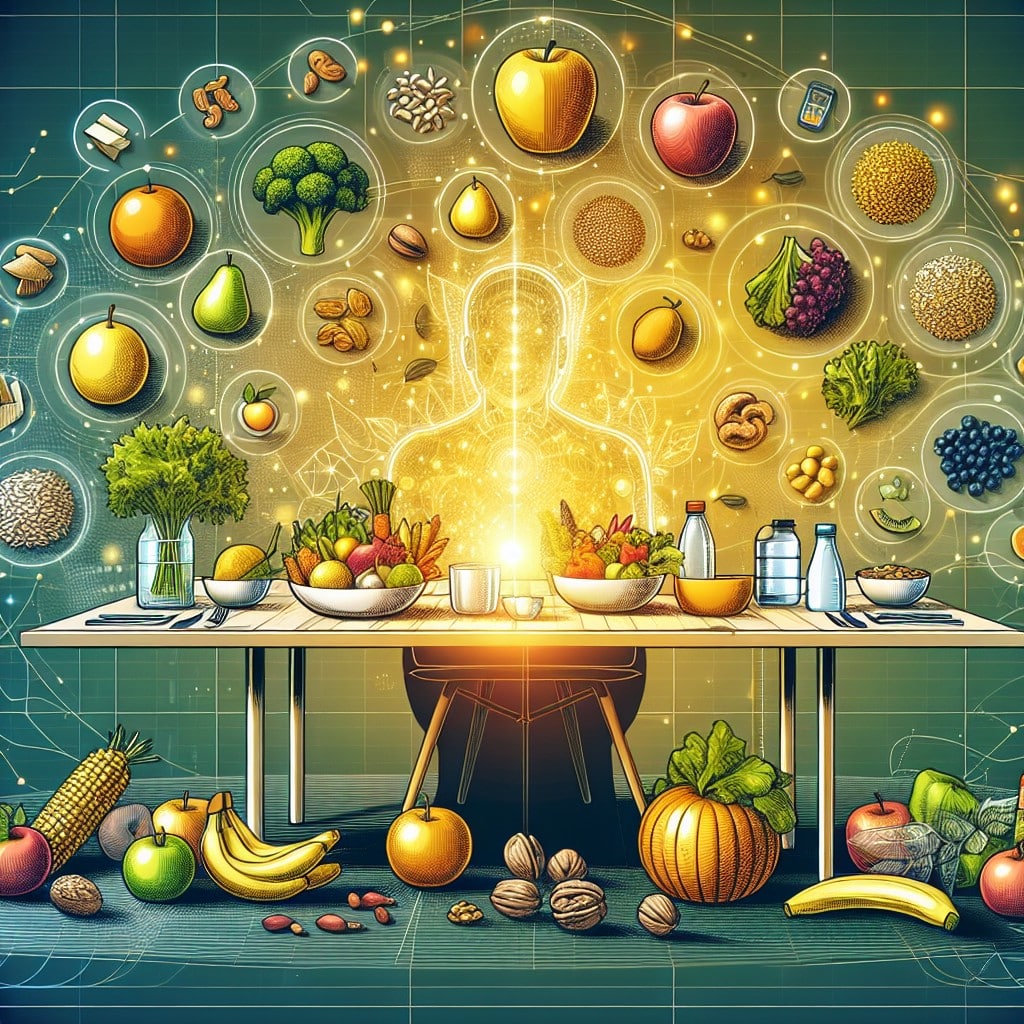
Unlocking Happiness: How the Right Foods Can Boost Your Mood
Many people are surprised to learn that what we eat can have a profound impact on how we feel emotionally. While happiness is influenced by a range of factors, scientific research increasingly shows that nutrition plays a key role in supporting mental well-being. By choosing the right foods, you can help regulate mood, reduce stress, and even enhance feelings of happiness and contentment.
Our brains require a variety of nutrients to function optimally, including amino acids, vitamins, minerals, and healthy fats. These nutrients help produce neurotransmitters such as serotonin and dopamine, which are closely linked to mood regulation. When our diets lack these essential components, we may become more susceptible to feelings of anxiety, irritability, or low mood.
Certain foods are particularly effective at boosting mood and promoting a sense of well-being. These include:
- Fatty fish – Rich in omega-3 fatty acids, fish like salmon, mackerel, and sardines support brain health and may help promote positive mood.
- Whole grains – Foods such as oats, quinoa, and brown rice provide a steady supply of energy and support the production of serotonin, the “feel-good” neurotransmitter.
- Leafy greens – Spinach, kale, and other dark leafy greens are high in folate, a B-vitamin linked to promoting positive mood.
- Fermented foods – Yogurt, kefir, kimchi, and sauerkraut contain probiotics that support a healthy gut microbiome, which is increasingly recognized as a key player in mood regulation.
- Berries – Blueberries, strawberries, and raspberries are packed with antioxidants that help reduce inflammation and oxidative stress in the brain.
- Nuts and seeds – These are excellent sources of magnesium, zinc, and healthy fats, all of which contribute to better mental health.
Incorporating these foods into your daily diet doesn’t just nourish your body—it can also help unlock a happier, more balanced state of mind. By making mindful choices at mealtime, you’re taking an important step toward supporting both your physical and emotional well-being.
The Science Behind Food and Mood
Understanding the Gut-Brain Connection
The relationship between what we eat and how we feel is far more complex than it might seem at first glance. Central to this connection is the gut-brain axis—a bidirectional communication network linking the gastrointestinal tract and the brain. The gut is often referred to as the “second brain” because it contains millions of neurons and produces many of the same neurotransmitters as the brain, such as serotonin and dopamine. This intricate system allows the gut and brain to communicate through neural, hormonal, and immunological pathways.
One of the most fascinating aspects of the gut-brain connection is the role played by the gut microbiome, the community of trillions of bacteria and other microorganisms living in our digestive tract. These microbes help regulate inflammation, produce essential vitamins, and even influence our mood and behavior. Imbalances in gut bacteria have been linked to conditions like anxiety, depression, and stress, highlighting the importance of a healthy gut for emotional wellbeing.
Key Nutrients That Influence Emotional Wellbeing
Certain nutrients are particularly influential in supporting mood and mental health. A balanced diet rich in these elements can help stabilize emotions and improve overall psychological resilience. Some of the most important nutrients include:
- Omega-3 Fatty Acids: Found in fatty fish, flaxseeds, and walnuts, omega-3s are known to reduce inflammation and support brain function, potentially alleviating low mood and anxious feelings.
- B Vitamins: Vitamins such as B6, B12, and folate are essential for neurotransmitter synthesis and energy production. Deficiencies have been linked to low mood and cognitive decline.
- Magnesium: This mineral plays a role in regulating the nervous system and can help reduce symptoms of stress and irritability.
- Probiotics and Prebiotics: These support a healthy gut microbiome, which, as mentioned, is crucial for mental health. Foods like yogurt, kefir, bananas, and garlic are excellent sources.
- Vitamin D: Adequate levels of vitamin D, often obtained from sunlight and fortified foods, are associated with positive mood.
How Diet Impacts Neurotransmitter Production
Neurotransmitters are chemical messengers that regulate mood, sleep, and cognition. The building blocks for these neurotransmitters—such as serotonin, dopamine, and gamma-aminobutyric acid (GABA)—are derived from the foods we eat. For example, the amino acid tryptophan, found in turkey, eggs, and nuts, is necessary for the production of serotonin, often called the “feel-good” neurotransmitter.
Carbohydrates also play a role by facilitating the absorption of tryptophan into the brain, which is why balanced meals that include complex carbohydrates can promote a sense of calm and wellbeing. Similarly, tyrosine, an amino acid present in dairy products, soy, and lean meats, is vital for dopamine synthesis, which influences motivation and pleasure.
Ultimately, a nutrient-rich diet supports optimal neurotransmitter production, helping to regulate mood and protect against mental health challenges. This underscores the profound impact that daily food choices can have on emotional balance and psychological health.
Top 10 Foods That Boost Mood Naturally
1. Dark Chocolate: The Sweet Mood Lifter
Dark chocolate is more than just a delicious treat—it’s a natural mood enhancer. Packed with antioxidants known as flavonoids, dark chocolate helps reduce inflammation and improve blood flow to the brain, supporting cognitive function and emotional well-being. It also stimulates the production of endorphins, the body’s “feel-good” chemicals, and contains a small amount of caffeine for a gentle energy boost. Enjoying a moderate portion of high-cocoa dark chocolate can help lift your spirits without the sugar crash associated with milk chocolate.
2. Fatty Fish: Omega-3s for Emotional Balance
Fatty fish such as salmon, mackerel, sardines, and trout are rich sources of omega-3 fatty acids, which play a crucial role in brain health and mood regulation. These healthy fats help reduce inflammation and support the production of neurotransmitters like serotonin and dopamine. Research has linked regular consumption of omega-3s to benefiting mood. To reap these benefits, aim to include fatty fish in your diet at least twice a week.
3. Bananas: Nature’s Serotonin Booster
Bananas are an excellent source of vitamin B6, which is essential for the synthesis of serotonin—a neurotransmitter associated with happiness and relaxation. They also provide a steady supply of natural sugars and fiber, helping to stabilize blood sugar levels and prevent mood swings. The magnesium and potassium found in bananas further support nerve function and stress reduction, making them a convenient and effective snack for emotional well-being.
4. Berries: Antioxidant Powerhouses
Berries such as blueberries, strawberries, raspberries, and blackberries are loaded with antioxidants, particularly anthocyanins and vitamin C. These compounds help combat oxidative stress and inflammation, both of which can negatively impact mood. Studies suggest that regular berry consumption may help boost mood and improve overall mental health. Add a handful of fresh or frozen berries to your breakfast or snacks for a colorful, mood-boosting addition.
5. Fermented Foods: Supporting a Healthy Gut
Fermented foods like yogurt, kefir, kimchi, sauerkraut, and miso are teeming with probiotics—beneficial bacteria that support a healthy gut microbiome. Since the gut and brain are closely connected via the gut-brain axis, maintaining gut health can have a significant impact on mood and emotional resilience. Including fermented foods in your diet may help reduce anxious feelings and boost mood by promoting the production of mood-regulating neurotransmitters.
6. Leafy Greens: Folate for a Brighter Outlook
Leafy greens such as spinach, kale, and Swiss chard are rich in folate, a B-vitamin vital for brain function and the synthesis of neurotransmitters like serotonin and dopamine. Low folate levels have been linked to mood and fatigue. Incorporating a variety of leafy greens into salads, smoothies, or cooked dishes is an easy way to support your mental and emotional health.
7. Nuts and Seeds: Magnesium for Stress Relief
Nuts and seeds—including almonds, walnuts, sunflower seeds, and pumpkin seeds—are excellent sources of magnesium, a mineral known for its calming effects on the nervous system. Magnesium helps regulate the body’s stress response and supports the production of neurotransmitters that influence mood. Regularly snacking on a handful of nuts or seeds can help ease tension and promote a sense of calm.
8. Oats: Steady Energy, Steady Mood
Oats are a complex carbohydrate that provides a slow, steady release of energy, helping to maintain balanced blood sugar levels and prevent mood swings. They are also a good source of fiber, which supports gut health, and contain tryptophan, an amino acid involved in serotonin production. Starting your day with a bowl of oatmeal can provide lasting energy and help keep your mood stable throughout the morning.
9. Eggs: Protein and Choline for Brain Health
Eggs are a nutritional powerhouse, offering high-quality protein and essential nutrients such as choline, which supports brain development and function. The amino acids in eggs are building blocks for neurotransmitters, while choline aids in memory and mood regulation. Including eggs in your diet can help sharpen focus, boost energy, and support overall emotional well-being.
10. Avocado: Healthy Fats for Happiness
Avocado is rich in monounsaturated fats, which are important for brain health and mood regulation. It also contains B-vitamins, vitamin E, and fiber, all of which contribute to stable energy levels and a healthy nervous system. The creamy texture and versatile flavor of avocado make it an easy addition to salads, sandwiches, or smoothies, providing a delicious way to nurture both body and mind.
Simple Tips for Incorporating Mood-Boosting Foods Into Your Diet
Easy Meal and Snack Ideas
Adding mood-boosting foods to your daily routine doesn’t have to be complicated. Start by incorporating small changes into your meals and snacks. For breakfast, try a bowl of oatmeal topped with fresh berries and a sprinkle of chia seeds for a dose of fiber and omega-3 fatty acids. Greek yogurt with sliced bananas and walnuts is another quick option that combines protein, potassium, and healthy fats.
For lunch, opt for a colorful salad with leafy greens, cherry tomatoes, grilled salmon or chicken, and a handful of pumpkin seeds. Whole grain wraps filled with hummus, roasted vegetables, and spinach are both satisfying and rich in nutrients that support mental well-being.
When it comes to snacks, keep it simple and nourishing. Consider these ideas:
- Carrot sticks or cucumber slices with guacamole
- A small square of dark chocolate with almonds
- Apple slices with peanut or almond butter
- Trail mix made from dried fruit, seeds, and nuts
- Low-fat cottage cheese with pineapple chunks
Combining Foods for Maximum Benefit
Certain nutrients work better together, so pairing foods thoughtfully can maximize their mood-enhancing effects. For example, vitamin C from fruits like oranges or strawberries can help your body absorb iron from plant-based sources such as spinach or lentils. Including healthy fats, like those found in avocados or olive oil, with vegetables improves the absorption of fat-soluble vitamins (A, D, E, and K).
Here are some powerful food combinations to try:
- Spinach salad with strawberries and sunflower seeds
- Grilled salmon with roasted sweet potatoes and steamed broccoli
- Eggs scrambled with tomatoes and sautéed kale
- Whole grain toast with smashed avocado and sliced hard-boiled eggs
These combinations not only taste great but also provide a balanced array of nutrients to support your mood and overall health.
What to Limit or Avoid for Better Mood
While adding mood-boosting foods is important, it’s equally vital to be mindful of foods that may negatively impact your emotional well-being. Highly processed foods, sugary snacks, and beverages can cause spikes and crashes in blood sugar, leading to irritability and fatigue. Excessive caffeine and alcohol can also disrupt sleep patterns and contribute to mood swings.
To support a more stable mood, try to limit or avoid the following:
- Sugary drinks and desserts
- Refined carbohydrates such as white bread and pastries
- Processed snack foods high in sodium and unhealthy fats
- Excessive amounts of caffeine
- Alcohol, especially in large quantities
By making mindful choices and focusing on whole, nutrient-dense foods, you can help create a foundation for better mood and overall well-being.




